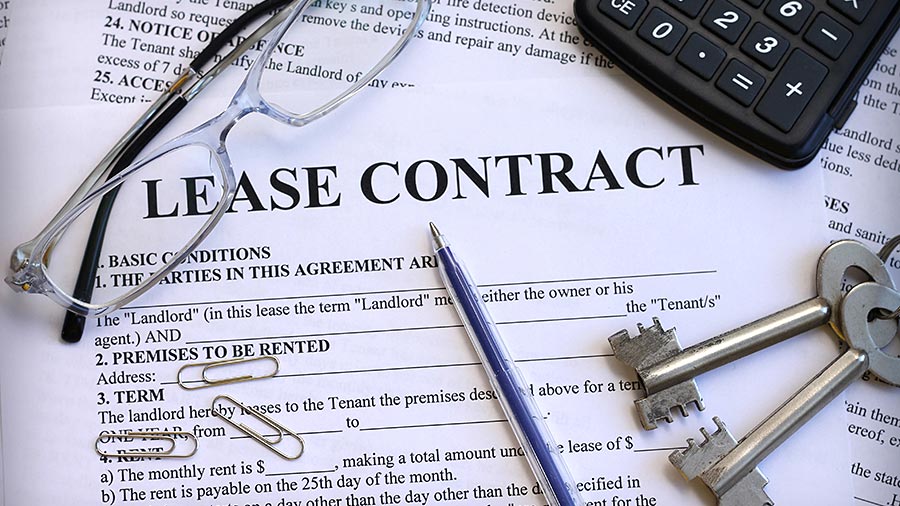Who wouldn’t want a secure ‘set and forget’ property investment leased to a publicly listed tenant on a long secure lease?

The benefits of owning well leased commercial property investments are clear, and include long secure leases, high-quality tenants, and often attractive lease provisions, including fixed annual rental increases. They also commonly offer net terms – where the tenants are responsible for the payment of outgoings – and most importantly higher returns, typically net yields of between 4% and 8% and sometimes higher. Now, compare this with residential investment. Instead of net lease terms the yields are typically under 4% gross. That means the true net return is even lower, once you take into account outgoings like body corporate fees and council rates, for example.
Then there is the quality of the tenant. Put simply, private tenants are going to be less secure generally than national or global companies, which are often intrinsically invested in the properties they occupy by virtue of the extensive tenant fit-outs and the continuity of the growing customer bases visiting their locations over time.
Given the typical apartment price in Sydney might be, say, $700,000 and house prices are around $1.1m, most people don’t realise that there are commercial investment properties on offer at similar price points to residential.
In recent times, as the residential market has cooled, this perception has begun to shift. More and more buyers are becoming frustrated by the lack of value in the residential market and have started to embrace commercial property investment. For instance, there are some strong regional investment properties that have sold in recent times, such as the ANZ Bank branch at Narrabri for $880,000.
Do’s and don’ts of commercial investing
Australia’s love affair with bricks and mortar is evolving to include commercial property, but there are some general guidelines for investors to follow if you want to succeed in this space. My list of do’s include:
1. DO adjust your mindset

Having a ‘location-specific mindset’ is often the primary driver of a residential investment, but that’s not always the case with commercial properties. Key factors to consider when purchasing a commercial property include the type of asset class, whether it’s fast food, childcare or government-tenanted; the strength of the tenant profile; and the lease term in place.
In most cases, the longer the lease the more secure your investment. The above three factors often rank higher than location, so it’s best to analyse and determine the outcome of each to ensure your commercial property will be a successful investment.
“There are significant opportunities … however, commercial property operates somewhat differently to residential property”
2. DO attend auctions and educate yourself
You can never have too much knowledge of commercial property, and a great place to start is to familiarise yourself with an auction environment. Attending an auction can significantly develop your understanding of commercial property fundamentals, from prices and yields to quality of the product and buyer interest.

3. DO compare like with like
Commercial yields tend to be quoted in net terms after all outgoings are deducted, while residential yields are often quoted in gross terms, ignoring outgoings, which is not accurate. In order to ascertain the true net income and avoid being misled, we encourage prospective purchasers to thoroughly research the financials as part of the due diligence process.
It is worth noting that several commercial leases are structured in net terms, where the tenant pays all statutory outgoings, including insurance and land tax. Many first time commercial investors find this surprising, but it is just another advantage that commercial has over residential investment.
4. DO diversify your portfolio
Similar to a share-market portfolio, diversifying your commercial property portfolio can come with a string of benefits. Investing in different asset classes – for example medical, service station or liquor – and various geographical locations can minimise your risk as an investor.
5. DO consider regional locations

You don’t need to limit your search to just the major capital cities. Quality investment stock is often in short supply, so it’s important to not limit yourself. Some investors can become fixated on investing only in major capital cities; however, there are plenty of regional areas with equally strong growth prospects. So, keep an eye out for those regional properties that are leased to quality brand-name tenants, as you’ll find they usually achieve more attractive returns.
6. DO familiarise yourself with basic commercial lease terms

Becoming proficient in reading and understanding key commercial lease terms could be the difference between investing in a successful property, or a dud. Having a fundamental understanding of landlord and tenant obligations, rent reviews and outgoings provisions is important as the lease document often forms the basis of the investment’s underlying value.
1. DON’T believe there is a one-size-fits-all yield
A commercial yield is all-encompassing and reflects specific attributes of the investment on offer, including but not limited to location, strength of tenant profile, length of lease, land size, development potential, and rent review structure.
2. DON’T commit until funds are in the bank
A common mistake we have witnessed occurs when an investor relies on funds from the sale of one property to finance another property, and then commits to the purchase before these come through. There is a huge amount of risk associated with this activity, which is easily avoidable if you wait until the settlement occurs from your other property and the money is in the bank.
3. DON’T bid without finance in place
Bidding without finance in place will only increase your stress levels and make the future uncertain. Undertaking appropriate due diligence is vital, particularly if you are new to the commercial property market, coming from a residential investment background.
Commercial loan terms can vary depending on the type of asset class, so always be sure to do your research and have the funds readily accessible.
4. DON’T buy without professional advice
Seeking accountancy and legal advice before bidding at an auction will assist you immensely in the buying process. Time and time again we witness successful bidders who are unsure of the purchasing entities, resulting in frantic phone calls to lawyers during the sign-up stage.
5. DON’T hold back on a blue-chip investment
Naturally, prime blue-chip investments garner a lot of interest and inevitably plenty of competition. Don’t hold back if it is truly a prime blue-chip asset, and accept that other parties will also fight hard to secure it.
Remember that the reasons you like the investment are no doubt the same as why others do, because it ticks most boxes of a successful commercial property investment.
6. DON’T rely on the agent’s marketing material
While agents’ marketing material, such as an Information Memorandum, usually provides an understanding of the key aspects of a commercial investment property, it is advisable that you carry out greater due diligence and request a Contract of Sale.
This forms the legal basis of the sale and should therefore be reviewed by yourself and your solicitor to mitigate any potential risks of the investment on offer.
Source from:
https://m.yourinvestmentpropertymag.com.au/strategy/commercial-investing-dos-and-donts-255293.aspx
Disclaimer:
The material and opinions in this article are those of the author and not those of AP Group. The material and opinions in the article should not be used or treated as professional advice and readers should rely on their own enquiries in making any decisions concerning their own interests or resort to professionals for assistance.


